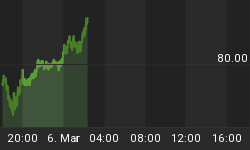Private bank stockholders aren't so much being crowded out as thrown out the window...
NOW, I'M NO banking analyst, but that gap on my resumé is starting to look like a very good thing indeed.
For who'd want to be stuck with the title "Banking Stock Analyst" now the banks are all broke...? Unless you already wanted to work for government anyway.
"When the Treasury tells a bank to pay a penny a share versus its old dividend, you know who's calling the shots," says Jon Bruss, an old-hand banker and founder of Fortress Partners Capital Management in Wisconsin according to Bloomberg.
"It may not be de jure nationalization but I think it's de facto nationalization."
Ignore the italics; state-control by law is coming regardless - soon and everywhere.
Starting in the US, Larry Summers' letter to law-makers last week guarantees nationalization by default, by making good on the myth that private investors control how publicly-quoted corporations behave. They therefore deserve an absolute loss of capital investment, if not a full public flogging, starting with zero return. And no return means zero risk capital.
Promising to be the very best head of Barack Obama's National Economic Council he ever could be, Summers vowed to cap and cancel dividends to banking stock-holders if their bank requests two dollops or more of federal assistance. So as the last fortnight's trade shows, those banks crying "Help!" will only see whatever risk-capital still remains flee...meaning the state will have to step in with more aid again...guaranteeing no return-on-investment to free-market cash...sparking a last panic out of the bank's issued share capital...leaving the feds to step in and acquire the whole bank.
Private investment isn't being crowded out, in short, so much as thrown out the window. But it's not just this capital re-structuring which will surely end with outright state ownership. Standing surety for depositors' cash makes it a dead-cert as well - or so we guess here at BullionVault - for all but the smallest, most boring (and therefore most innovative!) groups.
Deposit insurance is one thing, and a very fine thing the FDIC represents too - that post-Depression vow of well-meaning bureaucrats to abolish all day-to-day risk in money, creating untold risk instead in home loans, investment banking and consumer credit over the next 60 years. But stumping up hard cash in the event of a bank-run would now be quite another joy-ride entirely. Because one run would beget more runs elsewhere. And meeting the cash call all in one go would bankrupt the entire state at a stroke.
For example, household cash balances at UK banks now total almost £1 trillion ($1.35trn) - nearly twice the London government's entire 2008 budget. Other financial firms are owed a further £880bn by the banks. Non-financial firms hold £375bn on deposit. So in the event of a banking collapse, full nationalization would seem the cheap option (short-term, at least) ahead of paying out on the FSCS (the UK equivalent of the FDIC). Meeting the statutory promise, with little or no cash cushion to help, the British state would need to find something like 1.8 times a full year's GDP. A fire-sale of "assets" would only cause a further meltdown in stocks, housing and credit. Trying to raise the cash by selling new gilts would prove risible. (The UK's going to have trouble raising £118bn for its operational deficit alone in 2009.) Whereas deferring the hit, by taking it onto the state's balance-sheet for some indefinite settlement, at least keeps the sovereign solvent today.
And what does that world look like? Iceland is first to find out, that tiny island of 305,000 souls. Its banking sector - with risk "abolished" and thus merely transmuted, just like everywhere else - built up what looked like assets worth some €100 billion by 2007 (around $130bn, both at then and today's exchange rates). Yet the central bank only had €2 billion in foreign currency reserves, as the Wall Street Journal noted last autumn, "meaning it was effectively unable to fill its role as lender of last resort" when foreign lenders - the true deus ex machina for any national economy - baulked at fresh loans.
Come the crunch, Iceland's banks found themselves without a back-stop. The safety-net of government aid simply didn't exist...the holes between the strings were too big...and in a nation of just 305,000 people, the problem all governments face became plain to see. Because the Treasury, state, government, sovereign - whatever you want to call that leviathan supposed to exist outside of the day-to-day flux, secure and securing against all possible outcomes - is only ever identical with the population. National resources can never be greater than the nation itself.
Or as Abe Lincoln almost said, "Government of the people, for the people and by the people just keeps coming back to...umm...the people!"
Defending bank savers against bank default means using bank savings as their own guarantee. Because where else will the money come from? Now the risk of default stands so plainly in front of the entire industrialized world, it sure won't come from that rare beast known as banking-stock shareholders. Those few stock-holders still in are being chased away.
Fancy a loan, comrade?
















